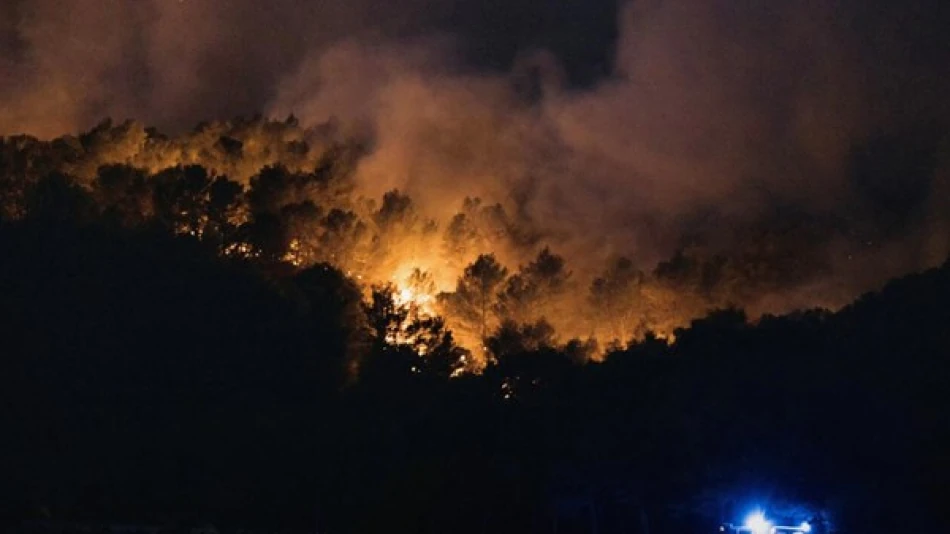
Massive Wildfire Rages in France, Defying Containment Efforts
France Battles Its Worst Wildfire in 80 Years as Climate Crisis Reshapes Mediterranean Risk
A devastating wildfire has consumed 16,000 hectares of forests and villages in southern France since Tuesday, marking the country's largest blaze in nearly eight decades. While the fire's intensity has diminished, authorities warn it remains uncontrolled, highlighting Europe's growing vulnerability to extreme weather events that are becoming the new normal across the Mediterranean basin.
Unprecedented Scale of Destruction
The inferno has claimed one life and destroyed dozens of homes, with three people still missing and two others—including a firefighter—in critical condition. Drone footage reveals vast stretches of charred earth covering an area one and a half times the size of Paris, underscoring the fire's catastrophic reach.
Located approximately 100 kilometers from the Spanish border near the Mediterranean coast, the blaze spread with unusual speed due to powerful winds and extremely dry vegetation following months of regional drought.
A Pattern Emerging Across Europe
This disaster reflects a broader trend plaguing Mediterranean Europe. Spain, Italy, Greece, and Portugal have all experienced record-breaking wildfires in recent years, with 2022 marking one of the worst fire seasons on record for the European Union. The European Forest Fire Information System reported that EU countries lost over 660,000 hectares to wildfires in 2022—nearly double the annual average.
Climate Change as the Driving Force
Scientists consistently link the increasing frequency and intensity of Mediterranean wildfires to climate change. Rising temperatures, prolonged droughts, and shifting precipitation patterns create tinderbox conditions that turn routine fire seasons into catastrophic events. France's Météo-France weather service has already issued warnings for another heatwave beginning Friday, which will persist for several days across other parts of southern France.
Economic and Environmental Consequences
Beyond immediate human costs, such fires carry significant economic implications. The insurance industry faces mounting claims, while tourism—a cornerstone of Mediterranean economies—suffers disruption during peak summer months. Agricultural losses compound the damage, particularly affecting wine regions and olive groves that define the cultural and economic landscape of southern France.
Environmental Minister Agnès Pannier-Runacher told France Info radio Thursday morning that the fire is now advancing more slowly, offering hope for containment efforts. Christophe Magni, an official leading firefighting operations, expressed optimism about containing the blaze later in the day but cautioned that "the fire is not yet under control."
Lessons from Global Fire Management
Countries like Australia and the United States have developed sophisticated early warning systems and controlled burning programs to mitigate wildfire risks. California's recent investments in power line monitoring and vegetation management offer models that European nations increasingly study as they confront their own escalating fire seasons.
The investigation into this fire's cause continues, but regardless of the ignition source, the underlying conditions—extreme drought, high temperatures, and strong winds—represent the new reality facing Mediterranean Europe. As climate patterns shift, traditional fire seasons extend and intensify, demanding fundamental changes in land management, urban planning, and emergency preparedness across the region.
Most Viewed News

 Layla Al Mansoori
Layla Al Mansoori






